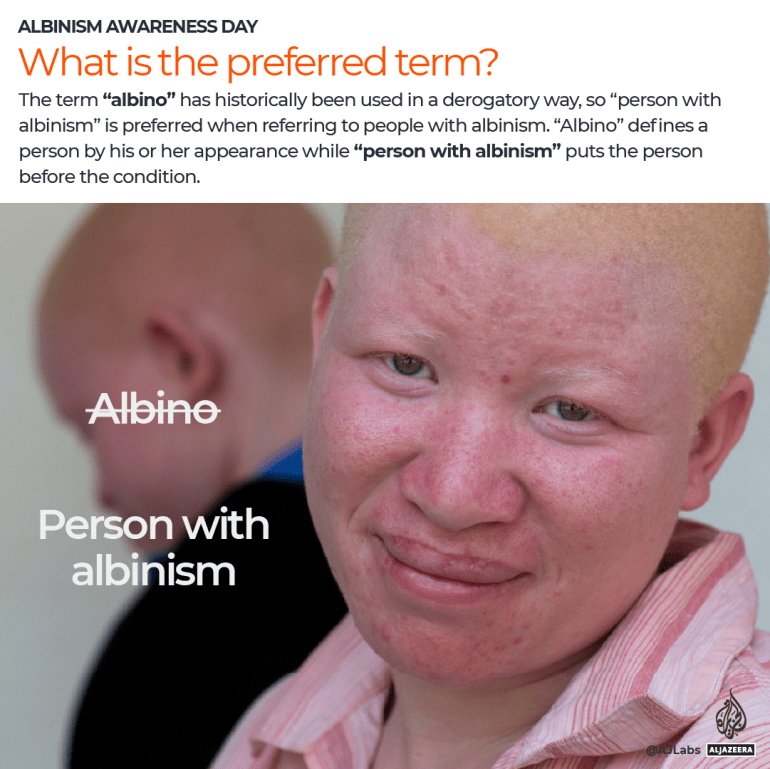How common is albinism and what gene causes it?
International Albinism Awareness Day aims to promote a better understanding of albinism and combat discrimination against people with albinism.
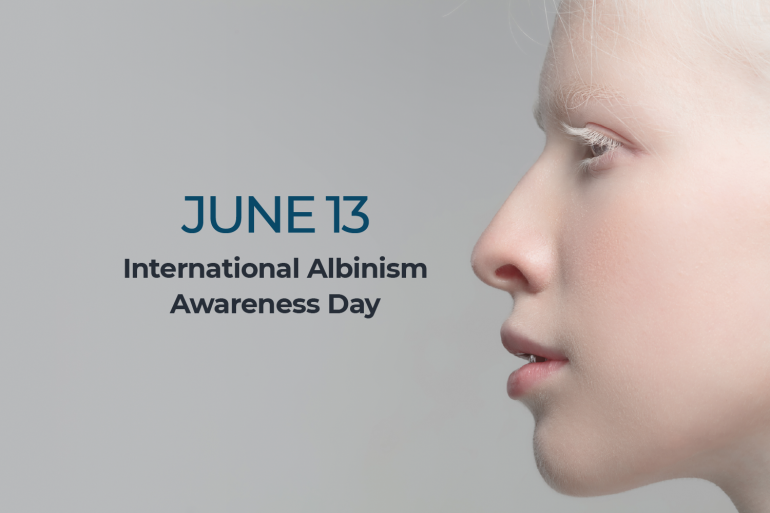
Albinism is a rare genetic condition that results in a lack of pigmentation (melanin) that normally gives colour to hair, skin and eyes.
People with albinism commonly experience sensitivity to bright light, which can lead to blindness and skin cancer. Additionally, in some countries, people with albinism suffer discrimination, violence and even death.
Keep reading
list of 4 itemsWhat is albinism and what causes it?
Malawi: People with albinism ‘living in fear’
Living – and dying – with albinism in Malawi
To promote a better understanding of albinism and combat discrimination against people with albinism, the United Nations designated June 13 as International Albinism Awareness Day.
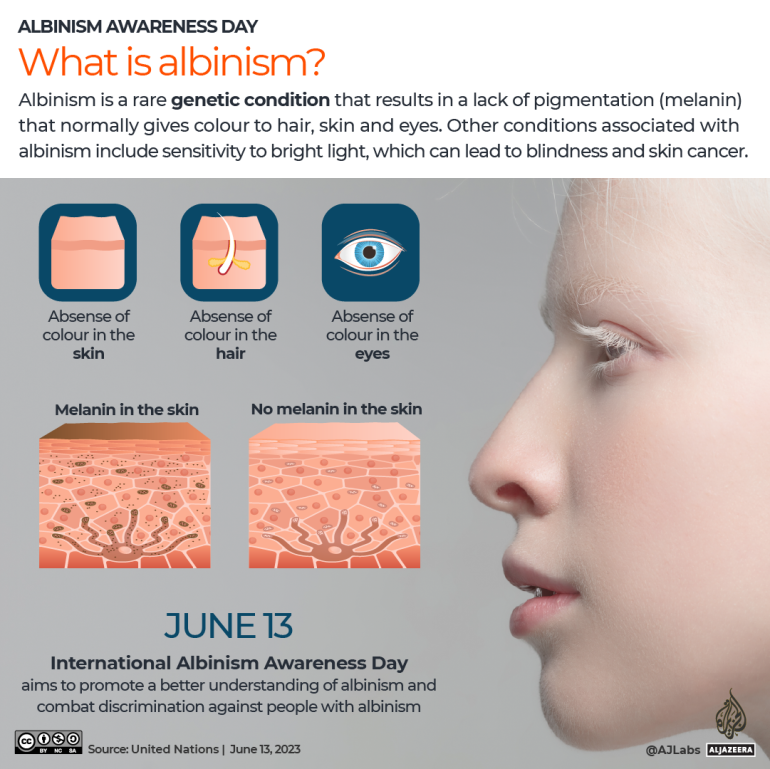
What causes albinism?
Albinism is caused by mutations in specific genes that are responsible for melanin production. This gene is recessive, meaning that both parents must carry the gene for it to be passed on. Albinism is not a disease, but is a genetic condition that people are born with.
There are several different types of albinism and the degree of pigmentation varies depending on the specific type one has.
Individuals with albinism face a high risk of skin cancer which is responsible for at least 80 percent of deaths, according to the UN. This risk is so significant that 98 percent of people with albinism do not live beyond the age of 40.
While there is no cure for the absence of melanin that is central to albinism, the condition can be managed by avoiding direct sunlight, wearing high-quality sunglasses that can block ultraviolet rays and wearing sun-protective clothing and hats when outdoors.
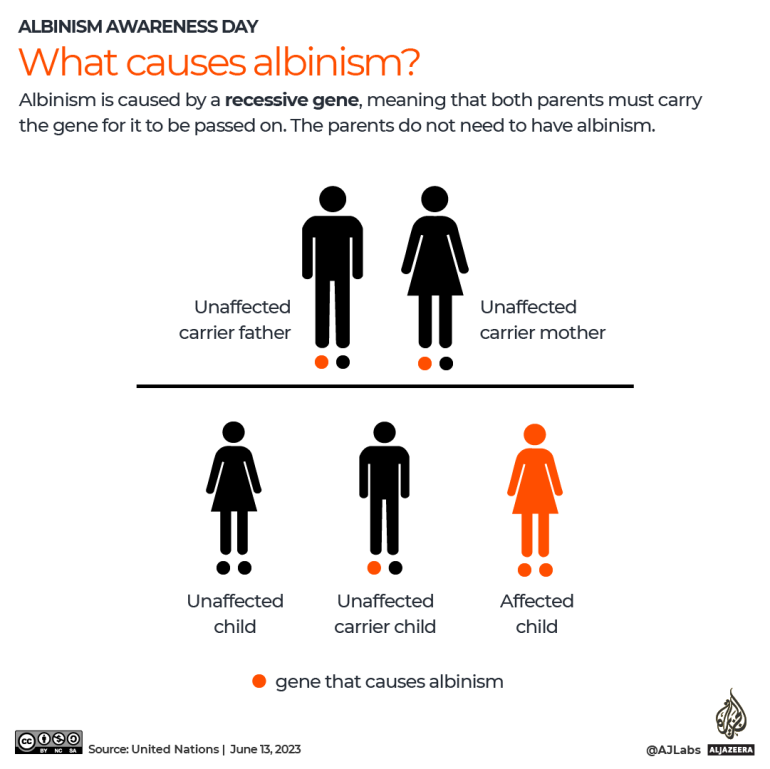
How common is albinism?
While albinism is generally uncommon, some forms of the condition are extremely rare.
Albinism occurs worldwide regardless of ethnicity or gender. While reliable data are not available for many parts of the world, it is estimated that in North America and Europe one in every 17,000 to 20,000 people have some form of albinism.
Albinism is most prevalent in sub-Saharan Africa with estimates of one in 5,000 to one in 15,000.
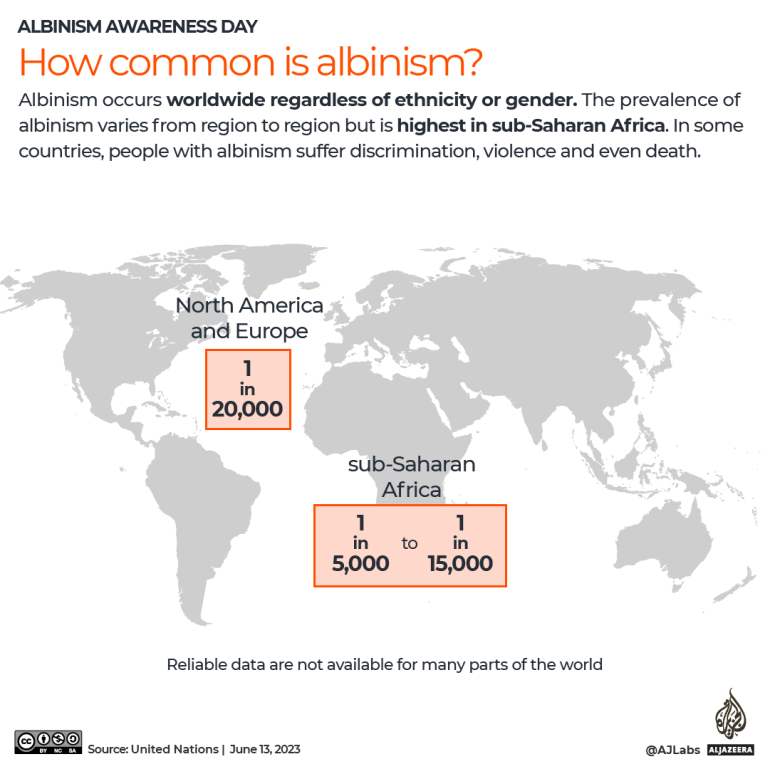
What is the preferred term?
The term “albino” has historically been used in a derogatory way, so “person with albinism” is preferred when referring to those with the condition. “Albino” defines a person by his or her appearance, while “person with albinism” puts the person before the condition.
